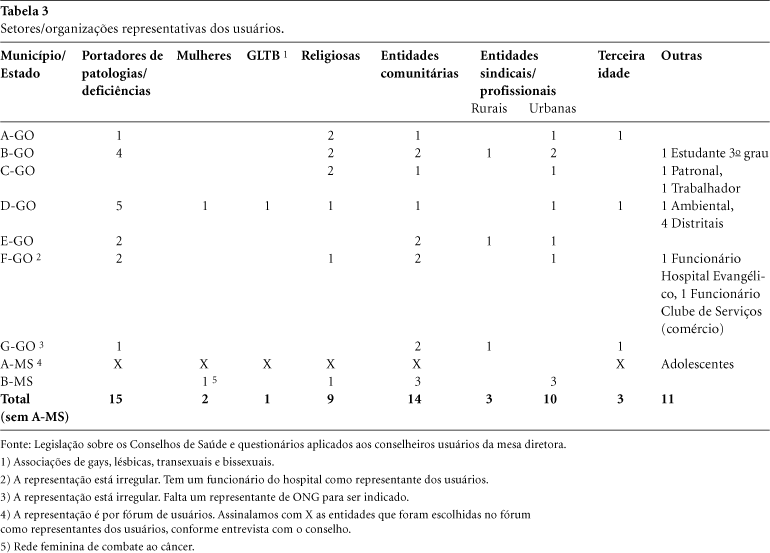This article investigates the effective participation of municipal health councils in public health care administration and evaluates its potential with respect to the restructuring of care by the family health strategy. Nine municipalities, included in base line studies for the evaluation of the Project of Expansion and Consolidation in the Center-East Region of Brazil, were taken as research locus. The premise is that institutional designs are relevant for understanding the significance of health councils, as they define opportunities for participation and articulation. The legislation on the health councils was examined and one representative of users in each health council was interviewed. The analysis focused on the composition of the councils, the civic associations represented by the users and the formal rules of the meetings, besides key problems such as the selective access to health councils and the legitimacy of decision-making. The results suggest that the councils have not much effect on the restructuring of health services. Notwithstanding, they exercise control on the public health administration, as they include new actors in the debate on health services, and foster legitimate decisions, because in resonance with discourses on the national health system.
Health Councils; Public participation in health care administration; Social control; Democratic innovation




